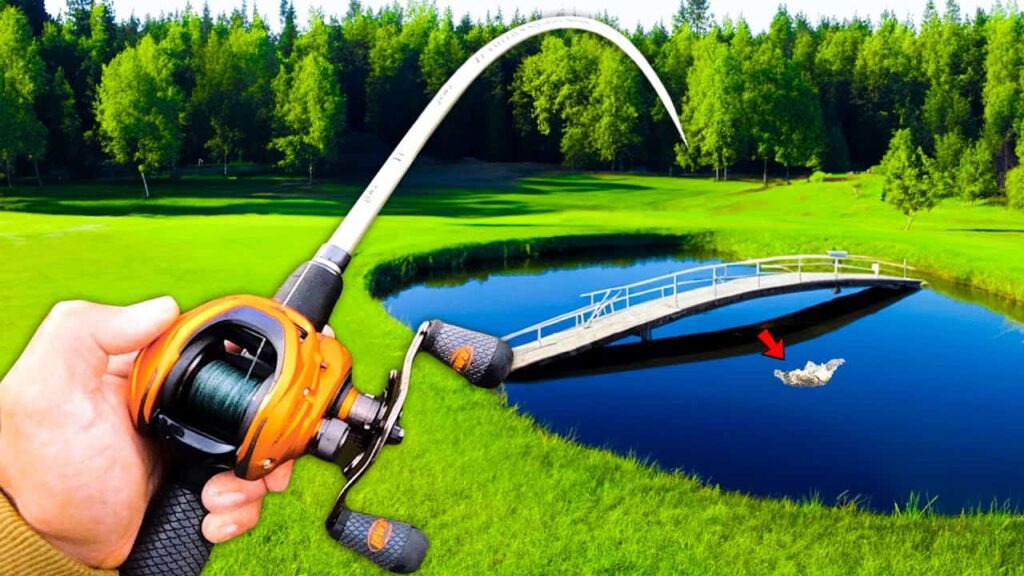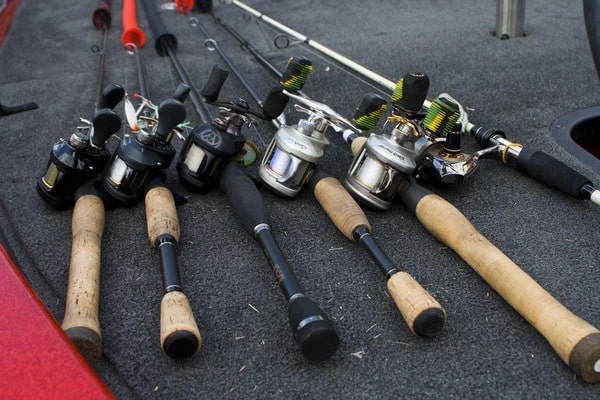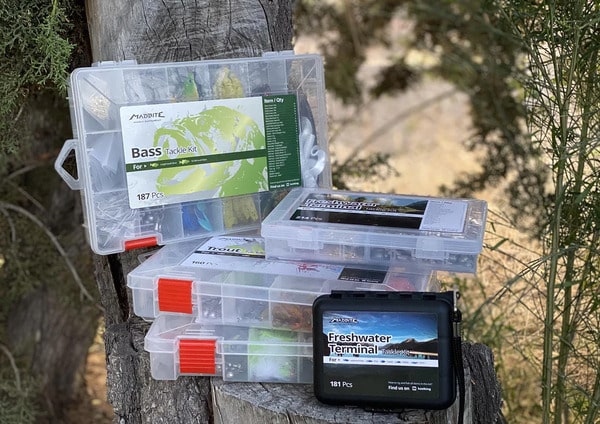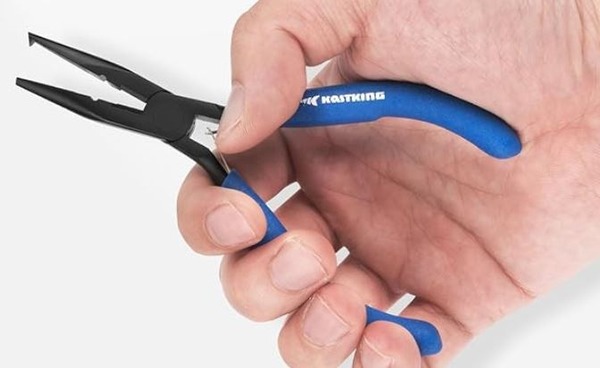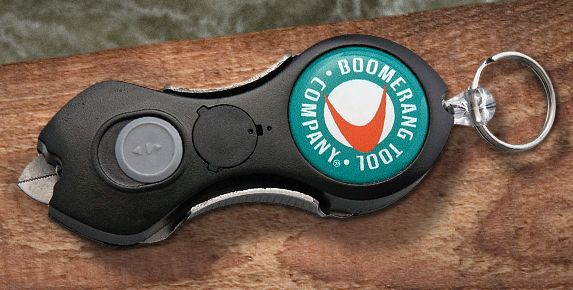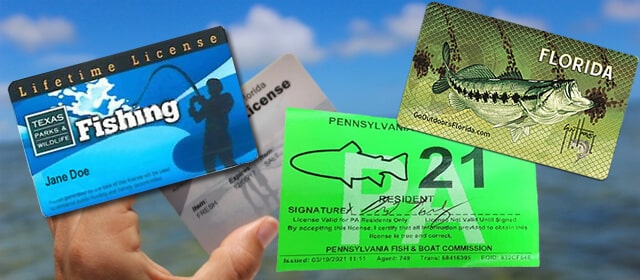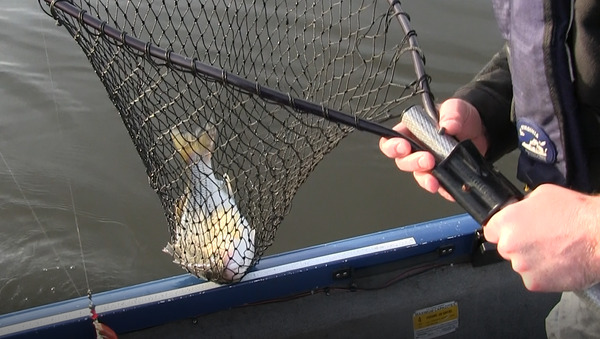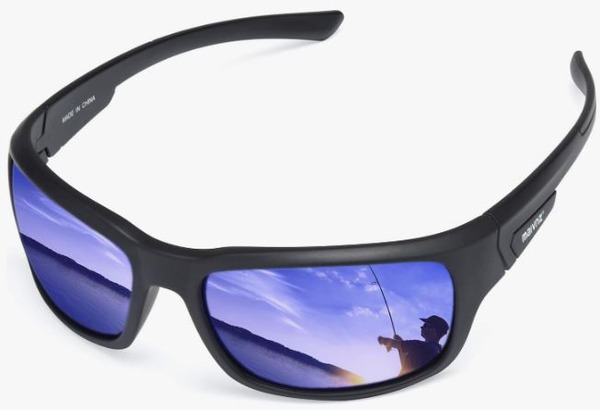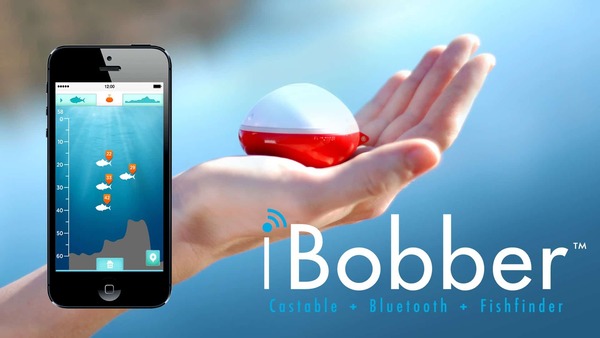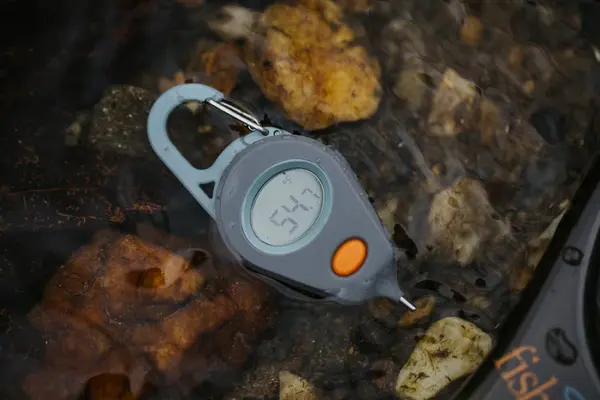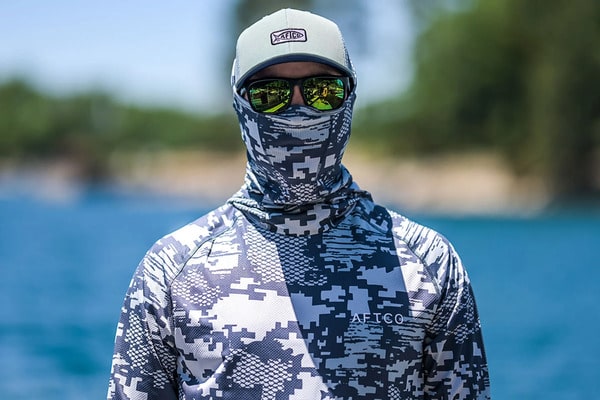What to Take On a Fishing Trip?
Before a successful day on the water, you need to know what to take on a fishing trip.
Embarking on a fishing trip requires careful preparation, ensuring you have all the essentials for success and enjoyment.
From rods and reels to handy accessories, each item plays a crucial role in enhancing your fishing experience.
Exactly What to Take On a Fishing Trip
These items are essential to have on a fishing trip. Without them, you will either have zero success or a much harder time out on the water.
1. Fishing Rods and Reels
I am sure you already knew this, but yes, you are going to need to take some fishing rods and reels with you an a fishing trip.
If you are a beginner, I suggest using one or two spinning rods and reels.
Spinning setups are much easier to use and will help you avoid tangles and other difficulties that come with fishing.
One ultra light spinning combo and one medium heavy combo will cover just about any fishing situation that you will come across.
2. Fishing Backpack
Having a good fishing backpack will make the trip much easier and more enjoyable.
You can fit all the tackle boxes, lures, fishing accessories, water bottles, snacks, and whatever else you need in a single backpack.
You can even get a fishing backpack with rod holders so that you don’t have to carry around your rods as you walk or travel around.
3. Lures and Terminal Tackle
Within the backpack and tackle boxes, you want to have a wide variety of lures and terminal tackle so that you are prepared to catch fish in all circumstances.
From topwaters to crankbaits, from spinnerbaits to texas rigs, you want to keep as many different lure options with you on the fishing trip.
4. Fishing Pliers
A pair of pliers are absolutely crucial for a fishing trip. It can sometimes be very difficult to take the hook out of a fish without a set of pliers.
Especially if you are using treble hooks, it is very easy to hook one of your fingers while trying to remove the hook.
Save yourself the pain and get a good pair of fishing pliers. You can also get a fishing multi tool that has a built in set of pliers.
5. Pocket Knife or Line Cutters
Every time you change your lure or tie a knot, you will need to cut the line.
A pocket knife will get the job done and is easy enough to carry around.
Braid cutters work a bit better, especially when using braided line. But which ever is more convenient will work.
6. Fishing License
Getting caught without a fishing license is the fastest way to ruin a fishing trip.
I will admit, I am sometimes guilty of fishing without one, but it is much better to be safe than sorry.
They are only about 10 dollars which is very cheap compared to the price of a ticket.
7. Fish Scale
Once you reel in a big catch, you want to be able to weigh it and see just how big it is.
Who knows, maybe you catch record fish. Having a fish scale makes the trip more fun and adds a competitive aspect to it.
8. Fishing Net
If you are fishing for smaller species such as bass, panfish, or perch, a net might not be required.
But if you are fishing for big catfish, pike, walleye, or other large fish species, you really want to have a net with you.
Less Essential, But Very Helpful Things to Bring
These are the less essential fishing items. You can certainly get by without them, but the will improve your fishing success and overall enjoyment of the fishing trip.
1. Polarized Sunglasses
Polarized sunglasses will remove the glare from the water and allow you to see below the surface much better.
This can help you spot fish or structure which will help you catch more fish.
As a kid, I never had any polarized glasses and I caught plenty of fish.
However, they certainly help out, and nowadays I never fish without them.
2. Hook Sharpener
If you are just going on a single fishing trip, you probable won’t need a hooks sharpener.
But if you are preparing to make fishing a hobby or are going on a multi day trip, than a hook sharpener will be a great addition to your arsenal.
Dull hooks can lead to missed fish and lower hook up ratios, so it is good to have a nice hook sharpener with you so that you can quickly sharpen up the hooks.
3. Portable Fish Finder
These super cool fishing gadgets allow you to have a bluetooth fish finder right on your phone.
You cast out the portable fish finder and get the sonar imaging directly on your smart phone.
Again, I certainly did not have one of these as a kid, so they aren’t a necessity. But they are a lot of fun and can help you catch more fish.
4. Water Temperature Thermometer
With a thermometer, you can quickly find out the exact water temperature.
This can give you insights on how fish will be behaving. But dipping your hands in the water will give a rough estimate that is probably good enough, so it isn’t required.
5. Fishing Sun Shirt
A fishing sun shirt is super thin, super breathable, and most importantly, keeps your skin out of the sun.
Fishing trips can require long hours in the hot sun and these help keep you out of the sun and cool at the same time.
Fishing Checklist for Beginners
Here’s a beginner’s fishing checklist to help you prepare for your fishing trip:
Clothing and Accessories
- Appropriate Clothing: Dress for the weather and wear clothing suitable for outdoor activities such as a breathable rain jacket.
- Hat/Sunglasses: Protect yourself from the sun’s glare.
- Sunscreen: Apply sunscreen generously to protect your skin from harmful UV rays.
- Insect Repellent: Keep pesky bugs at bay.
- Rain Gear: Be prepared for unexpected rain showers.
- Comfortable Shoes: Wear shoes suitable for walking on uneven terrain.
- Fishing License: Make sure you have the necessary permits to fish legally in your area.
Safety and Comfort
- First Aid Kit: Pack a basic first aid kit for any minor injuries.
- Water and Snacks: Stay hydrated and energized throughout your fishing trip.
- Navigation Tools: Bring a map, compass, or GPS device to help you navigate if you’re fishing in unfamiliar waters.
- Emergency Contacts: Keep a list of emergency contacts handy.
- Cell Phone/Communication Device: In case of emergencies or to inform someone of your whereabouts.
- Trash Bags: Leave no trace—pack out any trash or waste from your fishing spot.
Knowledge and Resources
- Fishing Regulations: Familiarize yourself with local fishing regulations and catch limits.
- Fishing Guide/Books: Bring along a guidebook or resource to help you identify fish species and learn fishing techniques.
- Fishing Apps: Consider using fishing apps to check weather forecasts, track fishing spots, or connect with other anglers.
- Basic Fishing Skills: Learn how to tie knots, cast properly, and handle fish safely.
- Patience and Positive Attitude: Remember that fishing requires patience and a positive attitude—enjoy the experience!
What to Take On a Multi Day Fishing Trip?
Clothing and Personal Items
- Appropriate Clothing for Changing Weather: Layers for warmth and protection from rain or sun.
- Extra Clothes: Bring enough clothes for each day, including socks and underwear.
- Rain Gear and Waterproof Boots: Stay dry in wet conditions.
- Sun Protection: Hat, sunglasses, and sunscreen to shield from the sun.
- Personal Hygiene Items: Toothbrush, toothpaste, soap, and other toiletries.
- Medications and First Aid Kit: Prescription medications and basic first aid supplies.
- Towel and Biodegradable Soap: Stay clean with quick-drying towels and eco-friendly soap.
Camping Gear
- Tent, Sleeping Bag, and Sleeping Pad: Shelter for resting during the nights.
- Camp Stove and Fuel: Cook meals and boil water for drinking.
- Cooking Utensils and Cookware: Pots, pans, utensils, and plates for preparing meals.
- Food and Cooking Supplies: Pack non-perishable foods, snacks, and ingredients for meals.
- Water Filtration or Purification System: Ensure a clean water supply during your trip.
- Lighting: Headlamps, flashlights, and lanterns for visibility at night.
- Camp Chairs and Table: Comfortable seating for relaxing around the campsite.
- Cooler with Ice: Store perishable food and keep drinks cold.
- Fire Starter Kit: Matches, lighters, or fire starters for campfires.
FAQ
How Should I Prepare for a Fishing Trip?
Research the fishing spot, pack essential items such as snacks and water, arrive early to secure a good spot, and stay patient and enjoy the experience.
How Do I Choose the Right Rod and Reel?
Consider the type of fish you’ll be targeting and the fishing conditions.
Match the rod and reel to the appropriate fishing line weight and lure weight.
Seek advice from experienced anglers or fishing professionals if unsure.
Do I Need a Fishing License?
Yes, in most places, a fishing license is required if you are above the age of 16.
Check the regulations for the specific location you plan to fish, as requirements vary by state or country.
Licenses can usually be obtained online, at sporting goods stores, or local government offices.
Reeling this In
Now that you know what to take on a fishing trip, you can be confident out on the water.
From fundamental gear to thoughtful additions, each item contributes to the richness of your experience.
So, before you head out on the water again, ensure you’re equipped with these essentials for a rewarding adventure.

